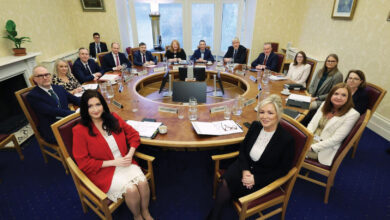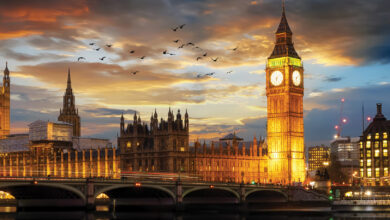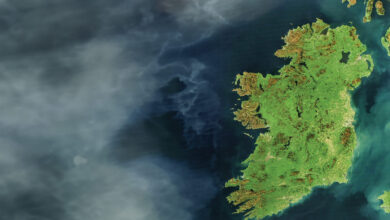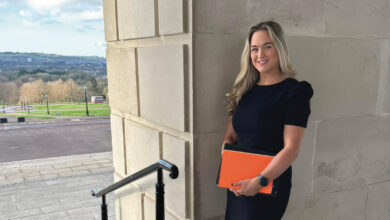
Thinking about the cabinet formed by our new Prime Minister, Alexander Boris Johnson, I was reminded of some suitably arcane characterisations which may have peppered his oeuvre of tendentious, sloppy, pretentious columns had I the stomach to re-read some of it, writes John O’Farrell of the ICTU.
The collection assembled around the cabinet table at Number 10 includes the Brexit minister who negotiated the withdrawal agreement, and then resigned when his backbenchers rebelled; the Health and Welfare ministers who denounced ‘no deal’ and now embrace it; the new minister for the Interior, who was publicly sacked for initiating a freelance UK foreign policy involving the Likud Party; the Finance minister who was a Managing Director at Deutsche Bank and oversaw the sale of Collateralised Debt Obligations, “a type of complex and risky financial product responsible for turbocharging the financial crisis” in 20081.
The characterisation which came to mind was ‘Mountebank’, a phrase last used by the late Labour leader Michael Foot (a far better journalist than ‘Al’ Johnson). The term seems arcane, almost phonesthemic in that it sounds like its intended meaning.
Like much of Foot’s marvellous invective, it was perfectly chosen and aimed like a lancet at its target, Dr David Owen. ‘Mountebank’s’ origins are Italian (monta in banco! ‘climb on the bench!’ (with allusion to the raised platform used to attract an audience). A Mountebank was a travelling snake-oil salesman, a person prepared to sell placebos or poison under the promise of delivering a miracle cure.
And sure enough, last month I saw that a Freedom of Information request revealed that Dr Owen had been pedalling his prescriptions to the Taoiseach Leo Varadkar: “I wish to urge you to carefully consider a possible basic contradiction within the EU–UK Withdrawal Treaty which has so far prevented a majority of British MPs approving it in its present form.”
The solution proffered by the failed Bosnian ‘peace’ facilitator was to take it to the European Court of Justice, innocent of the fact that the UK Government itself placed a thick ‘red line’ around the ECJ. The same red lines which ruled out participating in the customs union or single market, hence the UK’s own suggestion of the backstop as a solution to those blood red lines.
Reading that modest proposal, I took comfort in one of my long-standing maxims: If I ever find myself on the same side of any issue as Henry Kissinger, or Richard Littlejohn, or David Owen, then I need to urgently rethink my position.
The problem is that while one is never short of Montebanks to dispute or dismiss, especially on Brexit, there is never any difficulty in finding their views expressed, loudly and wrongly.
Brexit is publicly championed by a majority of UK newspapers, and any list of the UK media’s most prominent commentators will include a plurality of cheerleaders for ‘no deal’. The problem is that few are experts, a species denounced in 2016 by Brexit Preparations Minister Michael Gove (another journalist cut from a very different cloth to Michael Foot).
Every expert economist knows that Brexit will be bad and no deal will be awful. Every business leader, every exporter, every importer, every farmer and food producer, every worker and manager in manufacturing, finance, the voluntary sector, the NHS, education, the civil service, retail, transport who looks squarely at the daily facts of their current business and factors in the implications of crashing out knows that the unthinkable can happen.
This is where the press, and especially broadcasters, have a special responsibility. In fact, they have a legal duty to present the facts of the ‘news’ in an honest fashion (“with due accuracy and presented with due impartiality”). They are the inoculation we have for the snake-oil being peddled in the deluge of fake news, not on a bench at a market but on Facebook, where dark-money is channelling ads in their hundreds of millions into the phones and screens of the nation.
Last month, Northern Ireland’s leading civic society organisations representing business, trade unions, farming, and voluntary and community sector interests collectively issued a statement calling for the imminent potential disaster of a no deal Brexit to be prevented. The opposition to Brexit, especially the current offer, is overwhelming. There are no credible ‘balancers’ in this debate.
The statement was virtually ignored by Northern Ireland’s broadcasters.





